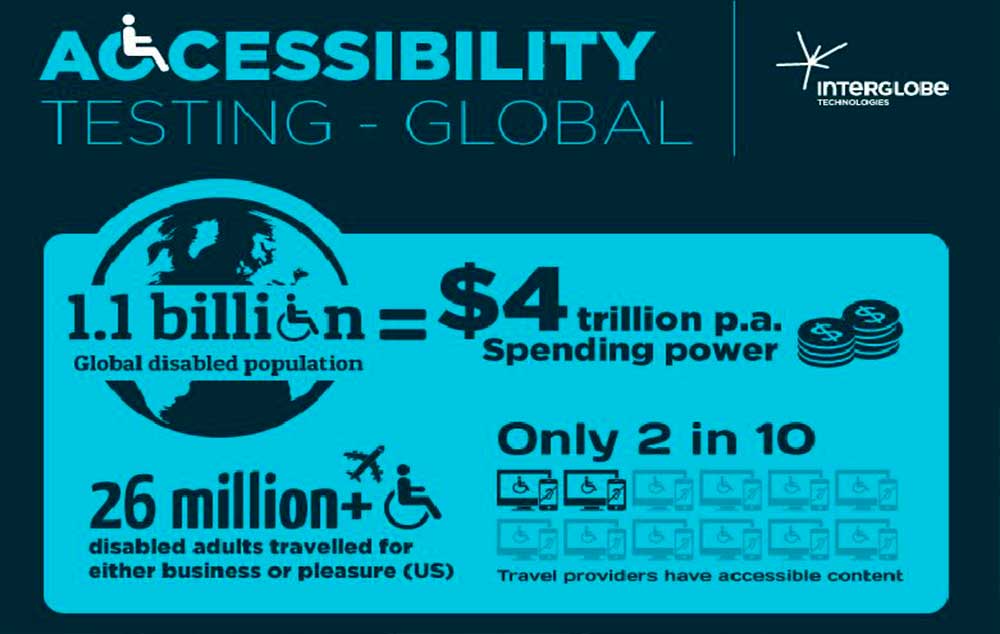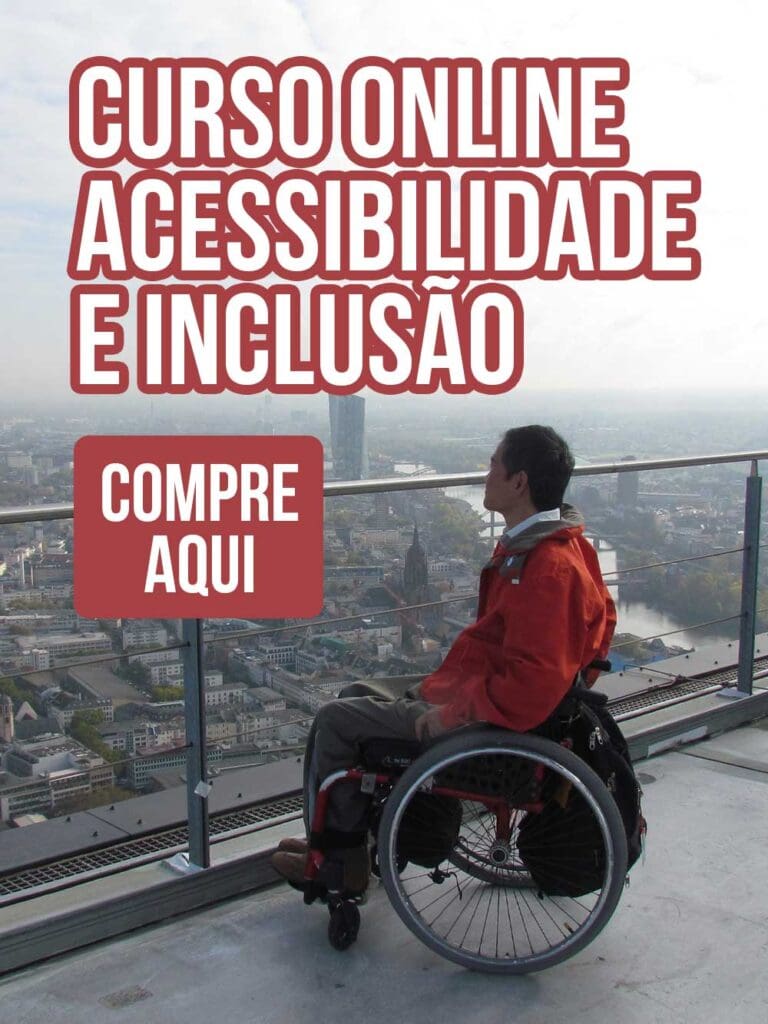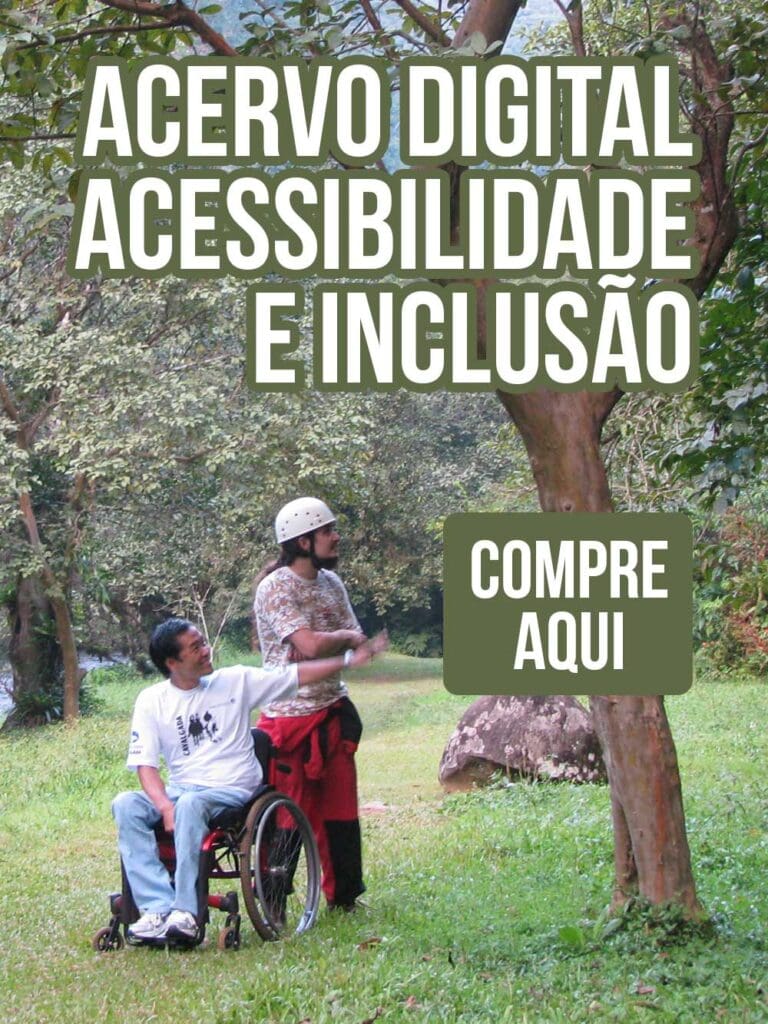Today, Travel is an experience that starts when a person clicks and lands on your site or engages with your app. And there starts the journey to customize every need, whim and want of that traveller and his experience. From bleisure travellers to baby boomers, travel is increasingly personalizing its offerings by digitalizing it all. Well, almost every traveller. Until recently, about 1.1 billion people globally were unable or found it hard to access, book or manage their journey online. Who are these 1.1 billion? These are people with disabilities such as blindness, dyslexia, color blindness etc. And if they can’t access your content, they can’t use your site ≠ book a travel with you.
A report by AbilityNet stated that these 1.1 billion differently-abled people globally control over $4 trillion annually. To put that into perspective that’s a market the size of China. And over 80% of travel is not optimizing this opportunity. This once-considered niche market is now very much mainstream and growing fast. Recently, with the new rules, there are legal repercussions in USA, UK and other countries for sites/ applications that are not “user friendly”. For ex: All airlines and OTA that function in the US or fly in and out of US are required to be user friendly for differently abled people.
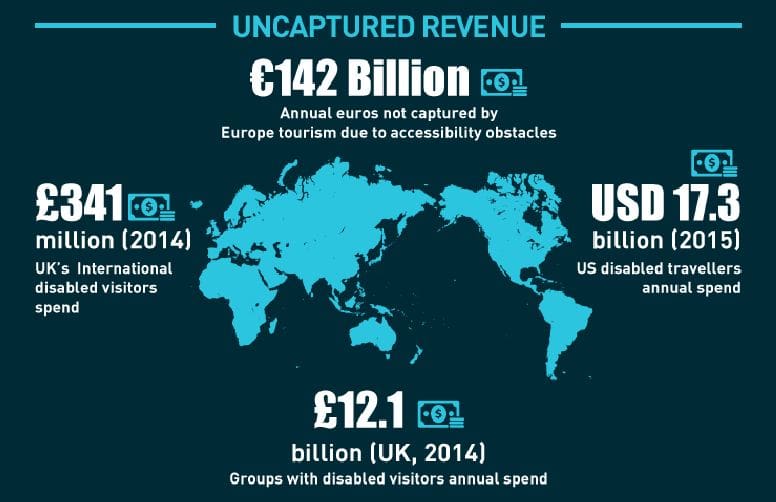 Interglobe – Uncaptured Revenue
Interglobe – Uncaptured Revenue
So, as well as the legal risks travel providers face in many global markets, the travel industry is also turning a blind eye to significant commercial revenue.
Accessibility’s Impact on Travel: Europe’s tourism market failed to capture €142 Billion due to accessibility obstacles in 2014. Let’s take a deeper look into what travel market stands to lose altogether:
- USD 4 trillion potential revenue
- CSAT/reputation
- Face Legal repercussions – govt. travel bodies (currently for airlines)
- Poor User experience
Starting with Aviation: By November 2015, all key functions of an airline’s website like reservations, ticketing, check in, managing booking and FF details needed to adapt to WCAG 2.0, levels A and AA. And, by November 2016, all web pages of airlines need to kowtow to this same standard. Soon kiosks in airport too will require being accessible. So in the travel industry, meeting these guidelines for airlines or to intercept them for future in Hospitality or transport is crucial and can be fulfilled via partners such as IGT.
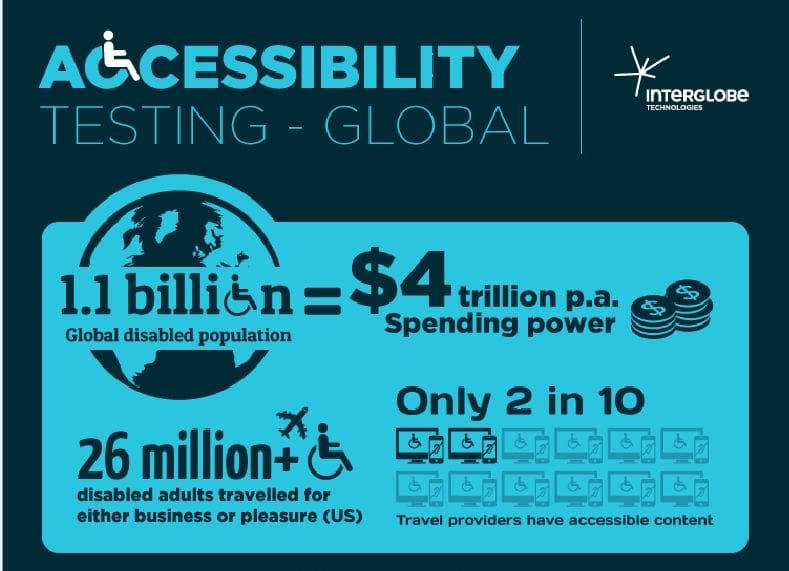 Interglobe – Accessibility Testing Global
Interglobe – Accessibility Testing Global
IGT’s accessibility testing services: IGT’s accessibility testing service is intuitive, affordable and driven by its CoE team helping companies audit accessible content and applications, validate user experience and enable better user experience across all their digital properties.
- Technical compliance (against industry recognized guidelines)
- Human user testing or ‘real-life’ compliance
- Accessibility testing – how much supporting information is provided for disabled users
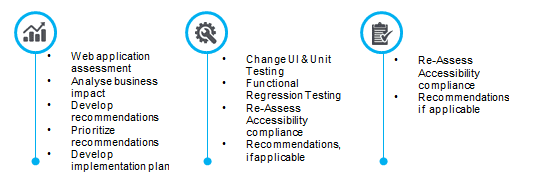 Interglobe – Accessibility Testing
Interglobe – Accessibility Testing
Each and every web page tested individually for compliance.
• Manual “real-time” testing of the content and script
• IGT CoE experts lead validation, recommend and develop implementation plan
• Uses automated testing solution that can perform test scripts
By stringently following the industry changes, IGT develops services & solutions, to make the customer systems compliant. IGT Testing CoE (Center of Excellence) brings in its expertise through Applications Accessibility Assessment (AAA) platform to ensure applications are compliant with Industry wide Accessibility Best Practices & Guidelines like of WCAG 2.0 & Section 508 guidelines. Accessibility has been known to make ‘finding information’ easier and quicker to use by a highly significant factor of 35% even for usual customers.
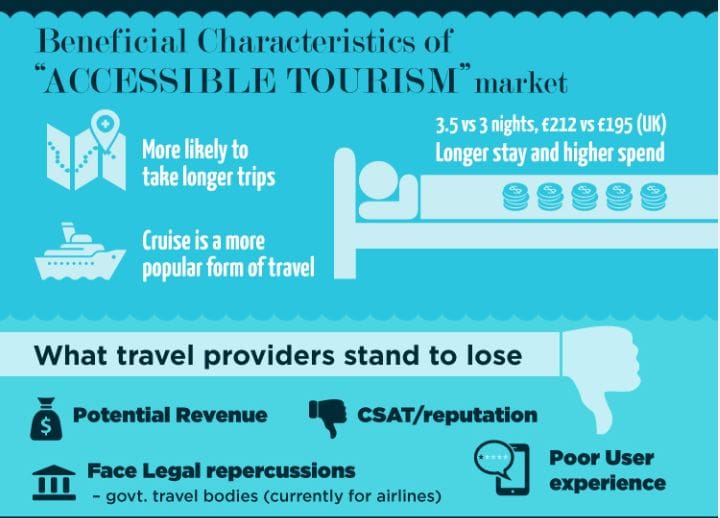 Interglobe – Beneficial Characteristics of Accessible Tourism market
Interglobe – Beneficial Characteristics of Accessible Tourism market
The untapped accessibility opportunity for travel providers: Increasingly online and mobile are the first –and often only preference for searching and booking travel, making it a critical that all travel and hospitality providers embarking towards being fully inclusive.
A report in 2014 showed that only 2 out of 10 travel sites were accessible and most were “technologically locking out” a key revenue source. Today e-businesses are losing out on some £50 – £60 billion per year of buying power. It doesn’t matter if you’re not an airline, whatever your role in the travel vertical, there’s a big chunk of potential revenue that can’t be overlooked.
Are your digital properties and applications accessible? You can register now for a FREE accessibility test with IGT.
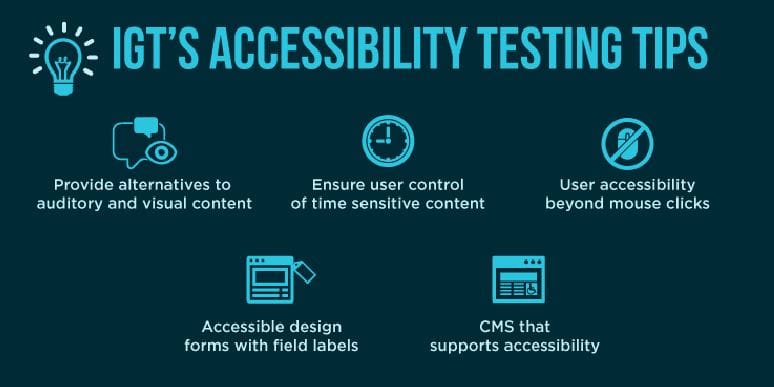 Interglobe – IGT’S Accessibility Testing Tips
Interglobe – IGT’S Accessibility Testing Tips
About the Author: Renee Kishore is digital marketing specialist, and a published author. A researcher and writer of change tactics and technologies in travel and other verticals, she frequently posts across the digital ecosystem. With 8-yrs of experience in communications and marketing, Renee has a passion for discussions and can be reached at: renee.kishore@igt.in
Source: IGT

